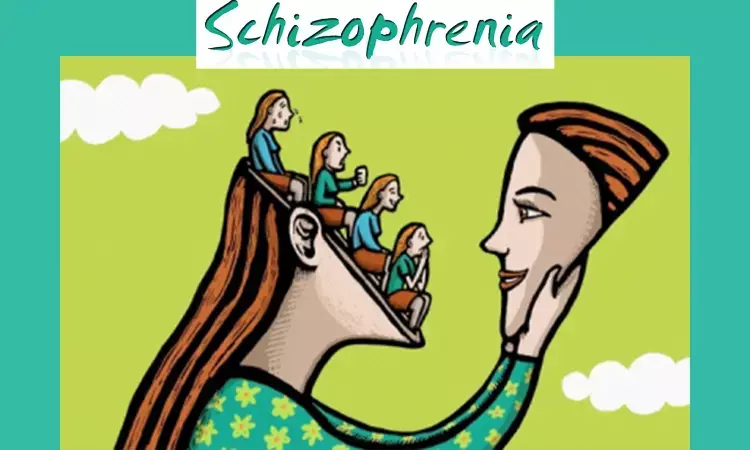- Home
- Medical news & Guidelines
- Anesthesiology
- Cardiology and CTVS
- Critical Care
- Dentistry
- Dermatology
- Diabetes and Endocrinology
- ENT
- Gastroenterology
- Medicine
- Nephrology
- Neurology
- Obstretics-Gynaecology
- Oncology
- Ophthalmology
- Orthopaedics
- Pediatrics-Neonatology
- Psychiatry
- Pulmonology
- Radiology
- Surgery
- Urology
- Laboratory Medicine
- Diet
- Nursing
- Paramedical
- Physiotherapy
- Health news
- Fact Check
- Bone Health Fact Check
- Brain Health Fact Check
- Cancer Related Fact Check
- Child Care Fact Check
- Dental and oral health fact check
- Diabetes and metabolic health fact check
- Diet and Nutrition Fact Check
- Eye and ENT Care Fact Check
- Fitness fact check
- Gut health fact check
- Heart health fact check
- Kidney health fact check
- Medical education fact check
- Men's health fact check
- Respiratory fact check
- Skin and hair care fact check
- Vaccine and Immunization fact check
- Women's health fact check
- AYUSH
- State News
- Andaman and Nicobar Islands
- Andhra Pradesh
- Arunachal Pradesh
- Assam
- Bihar
- Chandigarh
- Chattisgarh
- Dadra and Nagar Haveli
- Daman and Diu
- Delhi
- Goa
- Gujarat
- Haryana
- Himachal Pradesh
- Jammu & Kashmir
- Jharkhand
- Karnataka
- Kerala
- Ladakh
- Lakshadweep
- Madhya Pradesh
- Maharashtra
- Manipur
- Meghalaya
- Mizoram
- Nagaland
- Odisha
- Puducherry
- Punjab
- Rajasthan
- Sikkim
- Tamil Nadu
- Telangana
- Tripura
- Uttar Pradesh
- Uttrakhand
- West Bengal
- Medical Education
- Industry
Schizophrenia strongly linked to risk of dementia compared to depression or anxiety

Non-affective psychotic disorders have been associated with an increased risk of developing dementia. However, research in this area remains limited, highlighting the need for an up-to-date systematic review and meta-analysis of the evidence.
UCL researchers have found in a systematic review and meta-analysis that People with psychotic disorders such as schizophrenia are 2.5 times more likely than those without a psychotic disorder to eventually develop dementia. The new meta-analysis found that psychotic disorders may have a stronger link with dementia than other mental health disorders like depression or anxiety.
Dementia is a syndrome characterised by progressive cognitive and functional decline constituting one of the leading causes of disability worldwide. The prevalence of dementia is on the rise and it is estimated to double every 20 years, making it a major public health concern.
Schizophrenia and other related psychotic disorders are severe illnesses that involve symptoms such as hallucinations and delusions, and social withdrawal. Many people also experience impairments in cognitive and functional skills.
The researchers pulled together evidence from 11 studies from nine countries on four continents, which included close to 13 million participants in total.
They found that across multiple different psychotic disorders, and regardless of the age at which someone first developed their mental illness, there was a higher risk of dementia later in life.Some studies included people diagnosed with psychotic disorders while young adults, with follow-up periods of multiple decades. They also found that people who have had a psychotic disorder tend to be younger than average at dementia diagnosis, with two studies finding that people with psychotic disorders were much more likely to be diagnosed with dementia while still in their 60s.
The findings add to the list of modifiable risk factors for dementia. UCL researchers have previously found that four in 10 dementia cases could be prevented or delayed by targeting risk factors from across the lifespan.
For further reference log on to:
Dr Jean Stafford et al,Non-affective Psychotic Disorders and Risk of Dementia: A Systematic PMID: 36200264 DOI: 10.1017/S0033291722002781
Dr Kamal Kant Kohli-MBBS, DTCD- a chest specialist with more than 30 years of practice and a flair for writing clinical articles, Dr Kamal Kant Kohli joined Medical Dialogues as a Chief Editor of Medical News. Besides writing articles, as an editor, he proofreads and verifies all the medical content published on Medical Dialogues including those coming from journals, studies,medical conferences,guidelines etc. Email: drkohli@medicaldialogues.in. Contact no. 011-43720751


